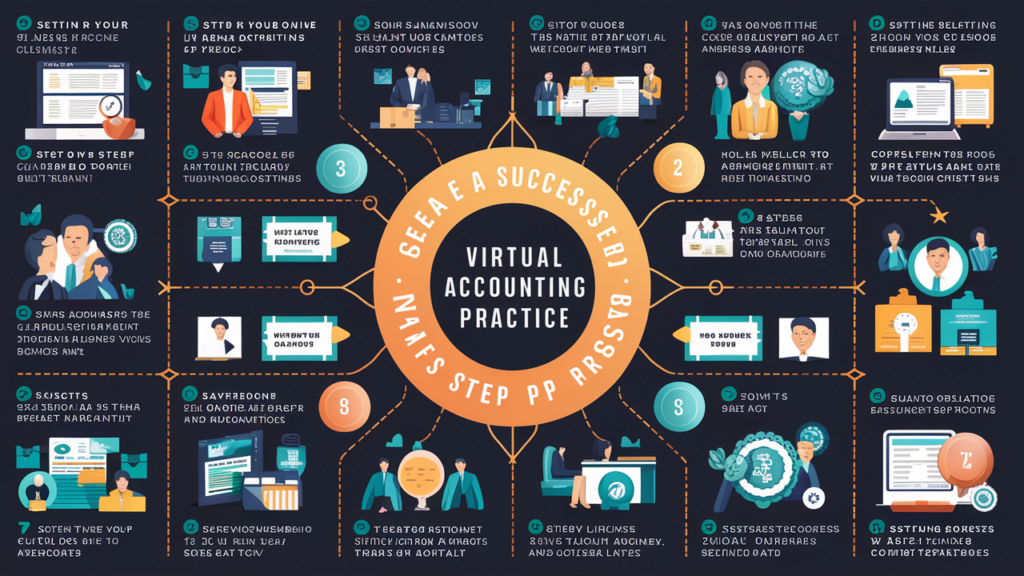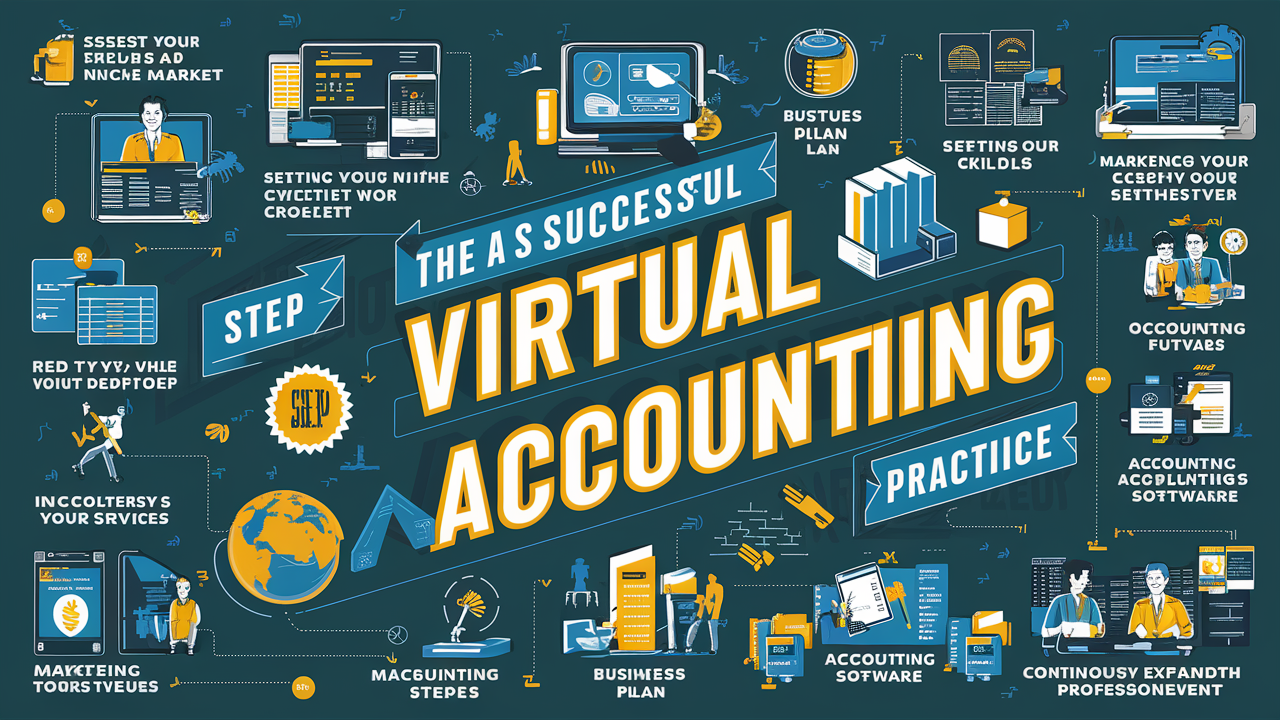Starting your own business can be exciting, and when you decide How to create a virtual accounting practice, you’re stepping into a world full of possibilities. Virtual accounting allows you to work with clients from anywhere, using the internet to provide financial services without the need for a physical office. In this guide, we will walk you through everything you need to know about how to create a virtual accounting practice that is both successful and sustainable.
To begin, it’s important to have a clear plan. Think about the services you want to offer, the software tools you’ll use, and the clients you want to serve. Virtual accounting can help businesses save money and gain better financial insights, so offering high-quality, trustworthy services is key. Let’s dive into the steps of creating your virtual accounting practice and setting yourself up for success.
How to Create a Virtual Accounting Practice: Why It’s the Future of Accounting
Creating a virtual accounting practice is an exciting way to work with clients without the need for an office. With more businesses moving online, offering accounting services virtually is not just smart, it’s necessary. You can work from anywhere, helping clients save money and stay organized. The best part? You don’t have to worry about expensive office space or commuting.
This practice is growing fast because it is flexible and efficient. When you create a virtual accounting practice, you can use technology to provide your services. Whether it’s managing taxes, handling bookkeeping, or providing financial advice, you can do it all from the comfort of your home. Many businesses, especially small ones, prefer virtual services because they are often more affordable and easier to access.
Key Steps in How to Create a Virtual Accounting Practice from Scratch

Starting your own virtual accounting practice requires some planning. First, think about what services you want to offer. Do you want to focus on taxes, bookkeeping, or both? Knowing your niche will help you build a strong client base. You also need to choose your target audience. Will you work with small businesses, freelancers, or individuals?
Next, set up your business structure. This could mean creating a business name, registering your practice, and getting the right licenses. Be sure to research local laws and regulations to avoid legal problems. Once you’ve set up your practice, you’ll need the right accounting software and tools to run your virtual services smoothly.
Choosing the Right Tools: How to Create a Virtual Accounting Practice with the Best Software
When you create a virtual accounting practice, having the right tools is very important. Choose software that can handle everything from invoicing to bookkeeping. Cloud-based tools like QuickBooks, Xero, and FreshBooks are great choices. They allow you to manage your clients’ finances safely and securely online.
In addition to accounting software, you may also need other tools for communication. Video conferencing apps like Zoom or Google Meet will help you stay in touch with clients. Secure file-sharing systems like Dropbox are also helpful for exchanging important documents. Having the right tools makes your virtual accounting practice run smoothly and professionally.
How to Create a Virtual Accounting Practice That Clients Love

Your clients’ satisfaction is key when you create a virtual accounting practice. It’s important to offer high-quality services that meet their needs. Always be clear about the services you provide and make sure to explain things in simple terms. Clients will appreciate your attention to detail and your ability to make complex financial concepts easier to understand.
Building trust with clients is essential in the accounting world. You can do this by being responsive and available when they need help. Make sure to keep clients updated on their financial status and provide regular reports. Over time, as you provide valuable services, you’ll create strong relationships with your clients, leading to long-term success.
Conclusion
Starting a virtual accounting practice is a smart decision, especially in today’s online world. You can provide valuable services to businesses and individuals without the need for an office. By choosing the right tools, setting up your business structure, and understanding the legal requirements, you can build a strong foundation for your practice.
Marketing your services and managing your workflow will also be important to your success. As you continue to provide high-quality, reliable services, you’ll build long-lasting relationships with clients. With the right planning, you can grow your virtual accounting practice and achieve your business goals.
FAQs
Q: What is a virtual accounting practice
A: A virtual accounting practice is an accounting business that provides services online, allowing accountants to work with clients without a physical office.
Q: How do I choose the best accounting software for my virtual practice
A: Choose software that fits your needs, such as QuickBooks or Xero, which are cloud-based and provide secure, easy-to-use tools for managing finances.
Q: Do I need any special licenses to create a virtual accounting practice
A: Yes, you may need a professional license depending on where you live and the services you offer. Make sure to check your local regulations.
Q: How can I find clients for my virtual accounting practice
A: You can find clients by creating a website, using social media, and networking with other professionals in the industry.
Q: Is a virtual accounting practice profitable
A: Yes, with the right tools and client base, a virtual accounting practice can be very profitable, as it reduces overhead costs and allows you to work remotely.

